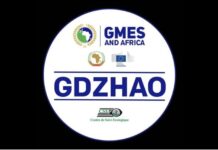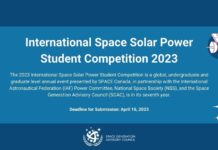The South African Radio Astronomy Observatory (SARAO) invites supervisors to submit Project Proposals for Postgraduate Research for 2020, in one or more of the following areas:
Science
Topics exploiting data projected to be available by 2020-21 from key existing radio astronomy instruments located in South Africa ( MeerKAT, HERA, C-BASS, early versions of HIRAX, and HartRAO facilities -including astrometry and geodesy applications). Amongst these, MeerKAT is the highest priority area.
Engineering
Engineering topics should be directly related to the needs of building and operating radio telescopes that are supported or hosted by SARAO. Proposed projects must provide the student with skills that are critical to radio astronomy and geodesy, and proposals should explicitly list these skills. Priority will be given to topics that fall within the areas listed here:
- Radio astronomy antennas and receiver systems (including digitization) associated with supported and hosted instruments.
- Real-time digital signal processing instrumentation for radio astronomy, specifically using FPGA and GPU platforms.
- Hardware and data analysis systems for detecting, monitoring and identifying Radio Frequency Interference (RFI), including the use of telescope data (e.g. using MeerKAT visibilities to locate RFI sources).
- Hardware, software, and data analytic systems associated with the control and monitoring of radio telescopes.
- Instrumentation and data analysis systems to support geodesy undertaken by SARAO.
1. SUPERVISION DEFINITIONS FOR THE PURPOSES OF SARAOFUNDED POSTGRADUATE RESEARCH
1.1 Primary Supervisor: A permanent academic staff member at a South African university, or a university in a SKA Partner Country, and therefore a member of the respective faculty board, or equivalent, at the university. The primary supervisor is responsible for ensuring that all university policies, rules, and regulations with respect to the supervision of postgraduate students are adhered to. The primary supervisor may also be the research supervisor, i.e. responsible for supervising the research aspects of a postgraduate student’s studies.
Co-supervisor/Research Supervisor: Need not be a permanent staff member at a South African university or a university in a SKA Partner Country. The co-supervisor/research supervisor is responsible for supervising/co-supervising the research aspects of a postgraduate student’s studies.
2. IMPORTANT INFORMATION PERTAINING TO THE SUBMISSION OF POSTGRADUATE RESEARCH PROJECT PROPOSALS, AND THE SUPERVISION OF APPROVED RESEARCH PROJECTS
2.1 All research project proposals must be submitted by a primary supervisor (see the definition of a primary supervisor in Section 1). In the case where the primary supervisor is not the research supervisor, the details of the co-supervisor, who will be responsible for supervising the research, must also be provided.
2.2 The research project/s proposed must be relevant to SARAO’s priority areas for postgraduate research in 2020. Please refer to Section 4, which provides the priority areas for Masters and Doctoral research in 2020.
2.3 The subsidy for postgraduate degrees from the Department of Higher Education is optimized for a Masters degree to be completed in two years, and a Doctoral degree to be completed in three years.
SARAO scholarships are aligned with this framework, and the research project proposals must be structured to ensure completion within the prescribed time.
2.4 Supervisors may submit more than one research project proposal; however, separate applications must be submitted for each research project proposal.
2.5 Supervisors may not submit the same project for Masters and Doctoral research.
2.6 Supervisors must ensure that the relevant data, instruments, equipment, and facilities for any research project is available from the start of the 2020 academic year, or as otherwise specified in Section 5 for data.
2.7 All research project proposals will be reviewed by SARAO, using the evaluation criteria listed in Section 3.
2.8 The list of approved research projects, as well as the contact details of the relevant supervisors, will be made available to the Masters and Doctoral students identified for SARAO scholarships for 2020.
2.9 SARAO-funded postgraduate students will be required to select one of the approved research projects for 2020, for their Masters or Doctoral degree. Students may not pursue research projects that are not on the 2020 list of approved projects.
2.10 Supervisors of the approved research projects will be provided with the contact information of the Masters and Doctoral students who have been identified as candidates to receive SARAO scholarships for 2020.
2.11 Students and supervisors will then be given the opportunity to contact each other to discuss project details and ascertain suitability for supervision, consistent with the list of prioritized focus areas for postgraduate research in 2020 (see Section 4).
2.12 A supervisor of an approved research project may not supervise more than one student on the same research project.
2.13 A supervisor of an approved research project will be required to submit Annual Progress Reports to SARAO, detailing a student’s progress. Progress will be measured against the original research project proposal, as approved by SARAO. If (minor) changes have been made to the research project, these will need to be explained and justified in the Annual Progress Report. Major changes will require prior discussion with SARAO HCD.
3. REVIEW CRITERIA FOR THE EVALUATION OF SUPERVISORS’ PROPOSALS FOR POSTGRADUATE RESEARCH APPLICATIONS
Research project proposals will be evaluated and ranked based on the following:
3.1 The relevance of the research proposed to SARAO’s focus areas for postgraduate research in 2020 and its scientific/technical merit.
3.2 The applicability of the research project to the respective academic level (Masters or Doctoral), and the feasibility of the project being completed within the appropriate time scales (Masters projects in two years and Doctoral projects in three years).
3.3 Feasibility of the research project in terms of the availability of relevant data and access to the required equipment and facilities.
3.4 Relevant experience of the research supervisor, including the number of postgraduate students successfully supervised in a particular research area, as well as the time taken for a supervisor’s postgraduate students to complete their degrees. The number of students currently being supervised by the prospective supervisor will also be considered. In addition, a supervisor’s track record of producing relevant research will be considered.
3.5 Please note that approved research projects proposals will be listed on www.ska.ac.za by 22 November 2019. If your project proposal is not listed on the web site, please assume that your research project proposal was NOT approved by SARAO.
Application forms are available at https://skagrants.nrf.ac.za
For queries with regards to the application requirements or the application procedure may be directed to:
Dr. Mthuthuzeli Zamxaka
Email: mzamxaka@ska.ac.za
Telephone: +27 11 442 2434
Closing date for applications is the 23rd of September, 2019.
Click here to get real time data and information on every Segments and players in the African space and satellite industry.



























